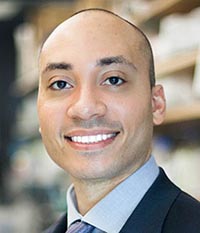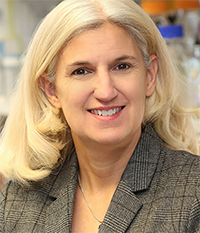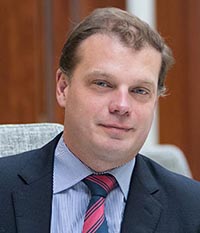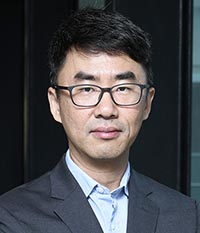SQI announces first round of Synthesizer Research Grants
The first projects funded through the SQI Synthesizer Research Grant Program feature innovative strategies to target stroke, cancer and neurodegenerative diseases.
The program was announced in the summer of 2023 to encourage the development of new approaches in regenerative nanomedicine that could yield transformative improvements in human healthspan. This seed funding mechanism is open to all Northwestern faculty and is intended to drive interdisciplinary collaboration.
mRNA Strategies for Cancer Treatment

Investigators: Evan Scott, Kay Davis Professor of Biomedical Engineering and Microbiology-Immunology (principal investigator); Karla Satchell, Anne Stewart Youmans Professor of Microbiology, Professor of Microbiology-Immunology (co-principal investigator).
Thanks to its use in vaccines for COVID-19, messenger RNA (mRNA) nanotechnology recently gained worldwide recognition as a powerful tool to generate new medicines. mRNA therapeutics work by instructing cells to make specific proteins, whether they are antibodies for vaccines or enzymes meant to break down other disease-causing proteins in the body.
Scott and Satchell aim to leverage this approach — the subject of the 2023 Nobel Prize in Physiology or Medicine — to target difficult-to-treat cancers. Considering approximately one-third of human cancers have mutated RAS genes that drive uncontrolled tumor growth, the investigators will design nanoparticles with mRNA designed to produce a unique bacteria-derived enzyme that degrades all variants of RAS within cancer cells.

Their SQI Synthesizer project will focus on lung cancer, but Scott and Satchell believe their strategy could apply to a range of cancers linked to RAS mutations, including colon, pancreatic and breast cancer.
“Professor Satchell and I are very excited by the opportunity to continue developing our pan-RAS degrading nanotherapy, which we believe could lead to novel treatments for many cancers that currently have few treatment options available,” Scott said. “This funding from the SQI Synthesizer program will allows us to gather the necessary preliminary data for submitting a strong grant application to the National Cancer Institute to continue developing this strategy into a clinically relevant treatment.”
New Approach to Boost Stroke Recovery

Investigators: Ayush Batra, Assistant Professor of Neurology and Pathology (principal investigator); David Sullivan, Research Associate Professor of Pathology (co-investigator).
In their SQI Synthesizer project, Batra and Sullivan will test whether bioactive nanostructures can be injected intravenously and promote recovery following ischemic stroke, a leading cause of disability and death in the U.S.
The nanostructures are capable of homing to the site of injury and are designed with a bioactive signal known to initiate repair in the central nervous system, which includes the brain and spinal cord. Batra and Sullivan will use a preclinical animal model and advanced imaging techniques to confirm that the therapeutic nanostructures aggregate in the brain where they are needed, and whether treatment with the nanotherapy enhances functional recovery after ischemic stroke.

More than 795,000 people in the U.S. have a stroke each year and approximately 87 percent of all strokes are ischemic strokes, according to a 2023 report from the American Heart Association. In this type of stroke, a blood clot blocks the flow of blood to the brain. Current treatment options include restoring blood flow with clot-removal or clot-busting agents, but Batra and Sullivan believe their nanotechnology approach could ultimately enhance stroke recovery by targeting the lingering inflammatory response and facilitating regeneration of damaged tissue.
“Therapies that go beyond restoring blood flow are desperately needed for acute ischemic stroke care,” Batra said. “Our approach has potential to expand the current treatment paradigm, potentially opening up therapies to a larger group of ischemic stroke patients.”
New Materials for Probing and Treating Neurodegenerative Disease

Investigators: Nathan Gianneschi, Jacob & Rosaline Cohn Professor of Chemistry, Materials Science & Engineering, and Biomedical Engineering (principal investigator); Xiaoyu Zhang, Assistant Professor of Chemistry (co-principal investigator).
For their SQI Synthesizer project, Gianneschi and Zhang aim to develop materials capable of clearing toxic proteins implicated in currently incurable neurodegenerative diseases, such as Alzheimer’s. An estimated 6.7 million Americans age 65 and older are now living with Alzheimer’s disease, a degenerative condition linked to cognitive decline and dementia.
To combat this common and devastating condition, the researchers will conduct proof-of-concept studies by employing a new approach for binding key, disease-driving proteins in a highly selective manner.

In their studies, Gianneschi and Zhang will test whether altering the fate of these proteins can be used to change the course of disease progression.
